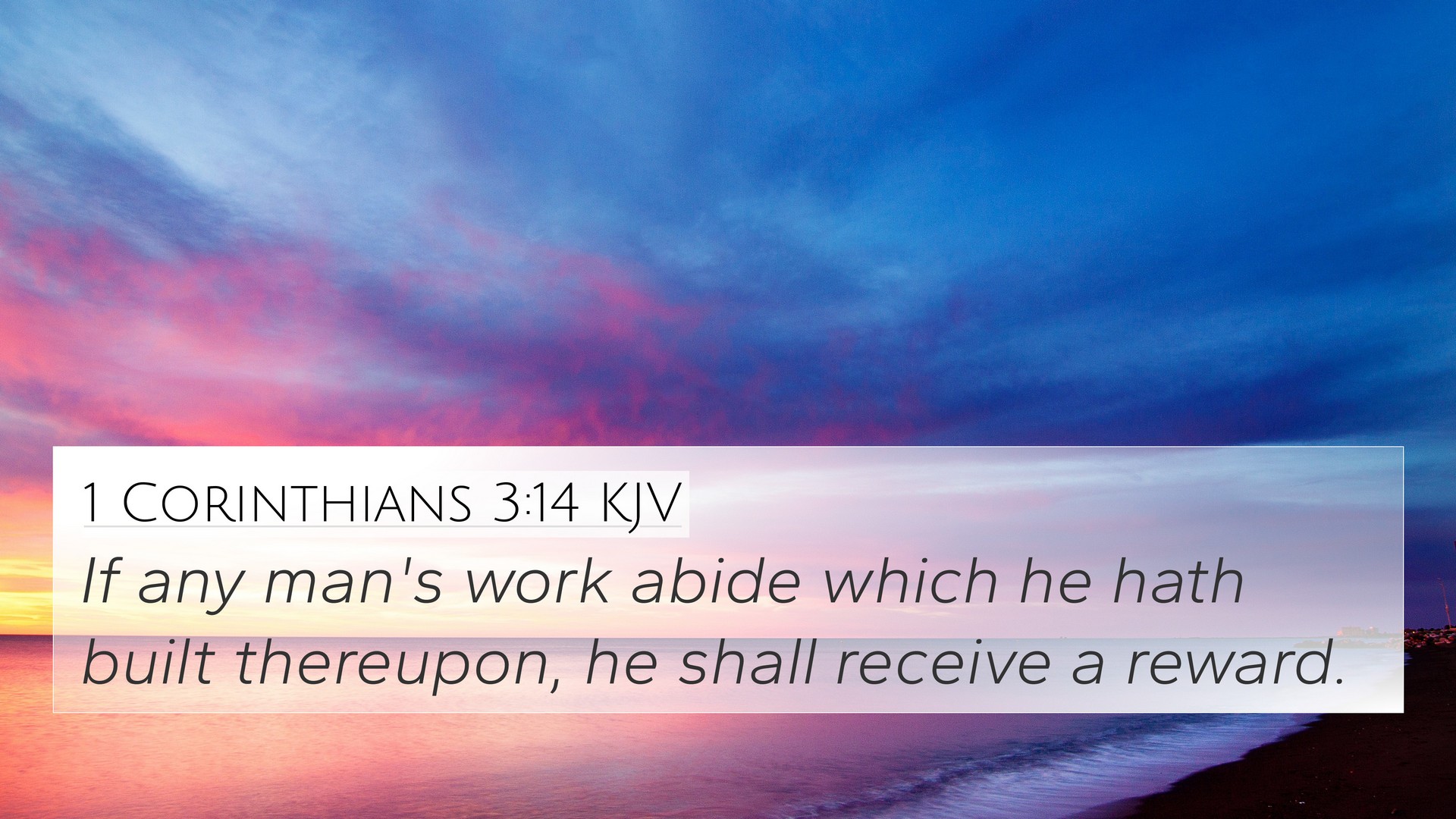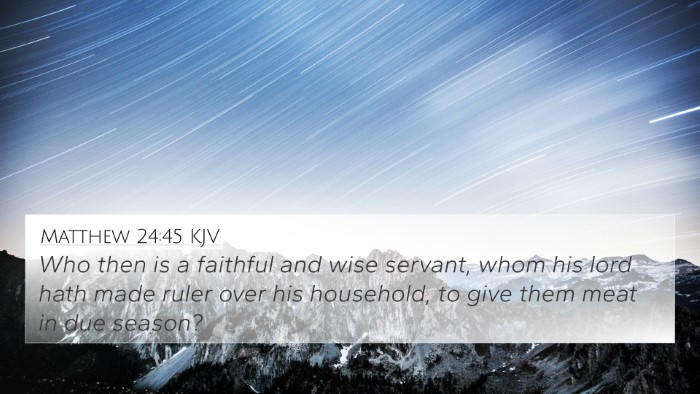Understanding 1 Corinthians 3:14
Bible Verse: 1 Corinthians 3:14 (KJV): "If any man's work abide which he hath built thereupon, he shall receive a reward."
This verse is situated within a larger discourse where the Apostle Paul addresses the church at Corinth regarding the work believers do in the kingdom of God. The context emphasizes the importance of building upon the foundation of Jesus Christ, with a particular focus on the quality and permanence of that work.
Commentary Summary
Matthew Henry's Commentary
Matthew Henry elucidates that this verse speaks to the accountability of believers regarding their works. The "work" signifies the contributions made to how the Gospel is presented and propagated. If these contributions are founded on the true principles of faith and righteousness, they will endure the test of divine judgment and result in reward.
Albert Barnes' Notes
Albert Barnes emphasizes that the notion of reward here pertains not only to eternal life but also to the acknowledgment of service and fidelity in the ministry and in the life of believers. The earned reward is tied to the quality of the work done in faith, which survives trials and fires—the imagery used frequently in scripture to depict testing and purification.
Adam Clarke's Commentary
Adam Clarke highlights that Paul refers to a judgment seat where the works will be evaluated. This testing will ascertain which works are genuine and which were built upon false motivations or superficiality. Clarke stresses that while salvation is free and by grace, the nature of one's works greatly influences the extent of reward in the heavenly realm.
Cross-References with 1 Corinthians 3:14
- Matthew 16:27: "For the Son of man shall come in the glory of his Father with his angels; and then he shall reward every man according to his works."
- 2 Corinthians 5:10: "For we must all appear before the judgment seat of Christ; that every one may receive the things done in his body, according to that he hath done, whether it be good or bad."
- Romans 14:10: "But why dost thou judge thy brother? or why dost thou set at nought thy brother? for we shall all stand before the judgment seat of Christ."
- 1 Peter 1:7: "That the trial of your faith, being much more precious than of gold that perisheth, though it be tried with fire, might be found unto praise and honour and glory at the appearing of Jesus Christ."
- Revelation 22:12: "And, behold, I come quickly; and my reward is with me, to give every man according as his work shall be."
- Luke 6:23: "Rejoice ye in that day, and leap for joy: for, behold, your reward is great in heaven: for in the like manner did their fathers unto the prophets."
- Philippians 3:14: "I press toward the mark for the prize of the high calling of God in Christ Jesus."
Thematic Bible Verse Connections
This verse is significant for understanding the concept of eternal rewards based on faithful service. It establishes a thematic link to other scriptures discussing the judgment of works and the blessings that follow faithfulness. The overarching narrative invites believers to examine their intentions and efforts in their faith walk.
Reflections on the Verse
The essence of 1 Corinthians 3:14 encourages self-reflection on the quality of one’s spiritual work. Each believer is called into a meaningful engagement with their faith, one that bears evidence and results in honor. It is crucial to align one’s pursuits with divine principles to ensure that what is built will withstand scrutiny and result in a lasting reward.
Tools for Bible Cross-Referencing
For those eager to dive deeper, various resources facilitate cross-referencing in scripture. Utilizing a Bible concordance or a cross-reference Bible study guide can enrich your understanding and draw connections across the biblical text, enhancing comprehension of themes such as God's judgment, the nature of faith, and eternal rewards.
Engaging with such resources can help identify connections between Old and New Testament teachings, providing a robust panorama of scriptural teachings on accountability and rewards. Practical methods of cross-referencing can illuminate Bible verses that relate to each other, fostering a deeper theological understanding and enhancing personal spiritual growth.
Conclusion
In conclusion, 1 Corinthians 3:14 serves as a powerful reminder to believers of the importance of diligent and authentic works that reflect one's faith in Christ. The promise of a reward emphasizes the significance of our actions in God's kingdom, encouraging a life committed not just to belief but to substantive engagement in His service.












